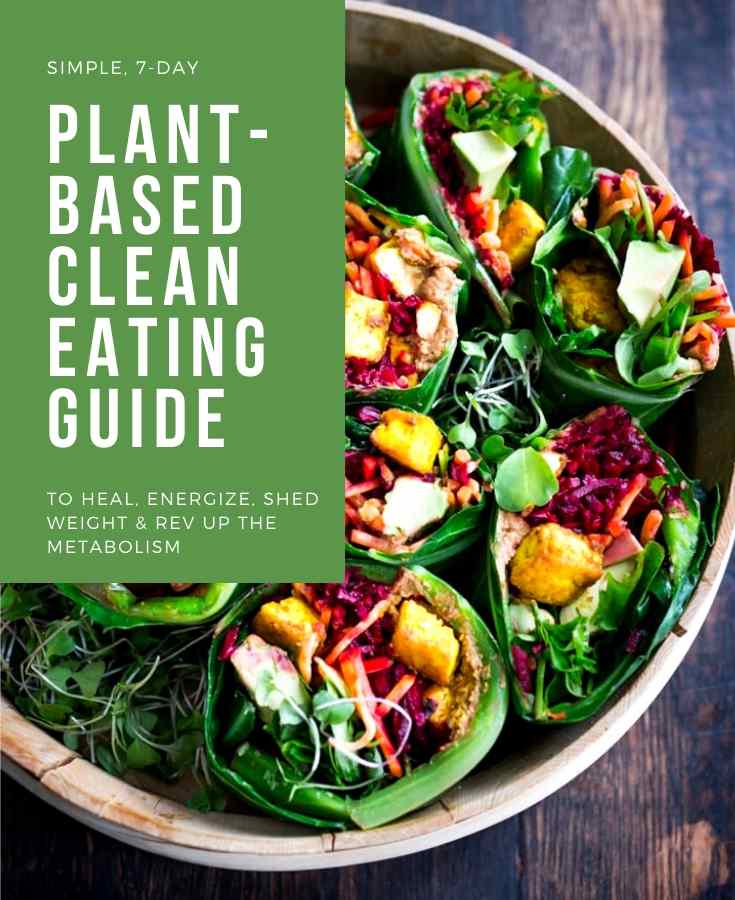
Your best options for preventing heart disease are regular exercise and a heart healthy diet. Most women don’t place heart care on the priority list. But, it's a big mistake for women to think that pills can stop the progression or heart disease. Research shows that lifestyle changes can lower your risk of developing heart disease by as much as 80 percent. Here are some ways to improve your heart health and prevent heart disease.
Reduce your risk factors by identifying them. Your risk of developing heart diseases is directly related to your gender, age and genetics. It is important you know that heart disease can be experienced by men and women in different ways. This is why it is important to learn about the risks for each. There are many lifestyle changes that you can make to reduce your chance of developing heart disease. But how can you determine which ones are right for you?

It is possible to begin by eating a heart-healthy diet. Plant-based foods are better than lean meat. Whole grains and nuts are also possible. This will help keep your heart healthy, and lower your chance of developing heart disease. A heart healthy diet is also important for keeping blood pressure under control and preventing strokes. You can make small changes to your daily life. You can make small, positive changes to improve your heart health and lower your risk of developing cardiovascular disease.
You can stay healthy by taking preventative measures against cardiovascular disease. This will help lower your chances of suffering a heart attack. By changing your diet, exercise and weight, you can help prevent future heart attacks. Your risk of developing cardiovascular disease can be reduced by making lifestyle changes. For a healthy lifestyle, it is important to increase your physical activity. You can reduce your chances of developing the condition. Your overall health can be improved by adopting healthy habits.
It is important to exercise regularly and eat a healthy diet. Healthy lifestyles can help lower your risk of developing heart disease. Heart conditions can be prevented by engaging in enough physical activity. The best way is to keep active. If you do not exercise, do some exercises instead. You can do this by starting a new hobby. This can help you stay in shape and decrease the chance of developing heart disease.

You should be screened if you have at least two risk factors. A blood test which measures your body mass and waist circumference is helpful. To ensure that your blood pressure does not fall below the normal range, you should have your cholesterol levels checked. It is important to avoid smoking, drinking excessive amounts of alcohol, and using tobacco. You will be healthier if you live a healthy lifestyle. Reduce these risk factors and you will be less likely for heart problems.
FAQ
What causes weight loss as we age?
How do you determine if your bodyweight is changing?
Weight loss occurs when there is less fat than muscle mass. This means that daily calories should be less than daily energy. Activity levels are the most common reason for weight loss. Other causes include illness, stress, pregnancy, hormonal imbalances, certain medications, and poor eating habits. If there is more body fat than muscle mass, then weight gain can occur. It occurs when people consume more calories per day than they need. It can be caused by overeating or increased physical activity as well hormonal changes.
Our bodies lose weight because we eat fewer calories than we burn. Regular exercise increases metabolism, which means that we burn more calories per day. But, this does not mean that we will be thinner. It is important to know if we are losing weight or gaining muscle. Weight loss is possible if you burn more calories than you consume. However, if we consume more calories than we burn, we end up storing them as extra fat.
As we age, we become less agile and don't move as often. We also tend have less food to eat than when our children were young. Also, we are more likely to gain weight. On the other hand, we have more muscle mass and look larger than we actually are.
Without regularly weighing yourself, it is impossible to gauge how much weight you have lost. There are many methods to measure your weight. You can measure your waist, hips and thighs as well as your arms. Some people prefer to use bathroom scales while others like to use tape measures.
To track your progress, weigh yourself once a week. Measure your waistline once per month. To track your progress, you can also take photos every few months of yourself to see how far it has come.
You can also look up your height, weight and body measurements online to determine how much you weigh. For example, if you're 5'10" tall and weigh 180 pounds, you'd probably weigh 180 pounds.
How can I tell what is good for me?
You need to listen to your body. Your body will tell you how much exercise, nutrition, and sleep you need. Your body will tell you what to do so that you don't go overboard. Pay attention to your body, and ensure that you are doing all you can to keep yourself healthy.
What is the problem with BMI?
BMI stands For Body Mass Index. This refers to the measurement of body fat using height and weight. The following formula can be used to calculate BMI.
Add weight in kilograms to height in meters squared.
The result can be expressed as a number between zero and 25. A score greater than 18.5 is considered overweight. A score greater than 23 is considered obese.
A person who is 100 kg in weight and 1.75m in height will have a 22 BMI.
What is the difference of a virus from a bacteria?
A virus can be described as a microscopic organism that cannot reproduce in another cell. A bacterium (or single-celled organism) reproduces by splitting itself into two. Viruses are small, around 20 nanometers in size. Bacteria are much larger, at 1 micron.
Viruses are often spread through contact of infected bodily fluids like saliva, urine or semen. Bacteria is usually spread directly from surfaces or objects contaminated with bacteria.
Viral infections can be transmitted through skin cuts, scrapes and bites. They may also enter through the nose, mouth, eyes, ears, vagina, rectum , or anus.
Bacteria can enter our bodies through wounds, cuts, scrapes, burns, insect stings, or other breaks in our skin. They may also come into our bodies through food, water, air, soil, dust, or animals.
Both viruses and bacteria can cause illness. Viruses cannot multiply in their host cells. They can only infect living cells and cause illness.
Bacteria may spread to other people and cause sickness. They can infiltrate other parts of the body. They can even invade other parts of the body, which is why antibiotics are necessary to eradicate them.
What are the 10 most delicious foods?
The 10 best foods to eat include:
-
Avocados
-
Berries
-
Broccoli
-
Cauliflower
-
Eggs
-
Fish
-
Grains
-
Nuts
-
Oats
-
Salmon
Is cold an indication of a weaker immune system?
There are two types of people in the world: those who love winter and those that hate it. It doesn't really matter whether you love winter or loathe it. You might be wondering why it makes you miserable.
The fact is that our bodies are designed for warmth and function best. Our bodies were designed to thrive in hot weather because this is where the majority of our food sources are.
However, our environment is quite different than that of our ancestors. We spend a lot more time indoors, and are often exposed at extreme temperatures (cold and hot), and we eat processed foods over fresh.
This means that our bodies aren’t used to these extremes. So, when we do venture outside, we often feel exhausted, sluggish, or even sick.
There are ways to combat these effects though. One way is to make sure that you stay well-hydrated throughout the day. If you drink plenty of water, you'll help keep your body properly hydrated and flush toxins from your system.
You must also ensure that you are eating healthy foods. The best way to maintain your body's optimal temperature is by eating nutritious food. This is especially beneficial for those who spend extended periods of time inside.
It is worth taking a few extra minutes each day to meditate. Meditation helps you relax your mind and body, which makes it easier to deal with stress and illness.
How can I reduce my blood pressure
You must first determine the cause of high blood pressure. You must then take steps towards reducing the problem. This could be as simple as eating less salt, losing weight, taking medications, etc.
You also need to make sure you are getting enough exercise. Walking can be a good alternative to regular exercise if time is tight.
A gym membership is a good idea if you don't like how much exercise your doing. It's likely that you will want to join a gym with other people who are working towards the same goals as you. It is easier to adhere to a fitness routine when someone else will be there with you.
Statistics
- This article received 11 testimonials and 86% of readers who voted found it helpful, earning it our reader-approved status. (wikihow.com)
- According to the Physical Activity Guidelines for Americans, we should strive for at least 150 minutes of moderate intensity activity each week (54Trusted Source Smoking, harmful use of drugs, and alcohol abuse can all seriously negatively affect your health. (healthline.com)
- The Dietary Guidelines for Americans recommend keeping added sugar intake below 10% of your daily calorie intake, while the World Health Organization recommends slashing added sugars to 5% or less of your daily calories for optimal health (59Trusted (healthline.com)
- In both adults and children, the intake of free sugars should be reduced to less than 10% of total energy intake. (who.int)
External Links
How To
27 Steps to a Healthy Lifestyle when Your Family Buys Junk Food
It is easy to eat healthy when you cook at home. But, it can be hard to make healthy meals because many people don't know how. This article will help you make healthier choices while dining out.
-
Choose restaurants that offer healthy options.
-
Before you order any meat dishes, make sure to order salads or vegetables.
-
Ask for sauces without added sugar.
-
Avoid fried items.
-
Grilled meats are better than fried.
-
Do not order dessert unless you really need it.
-
You should always have something to eat after your dinner.
-
Slowly chew and eat.
-
Take plenty of water with your meals.
-
Don't skip breakfast and lunch.
-
Have fruit and veggies with every meal.
-
Choose milk over soda
-
Try to avoid sugary drinks.
-
Reduce the salt content of your diet.
-
Try to limit the time you go to fast food places.
-
Ask someone to join if temptation is too much.
-
Make sure your kids don't spend too much time on TV.
-
Keep the television off during meals.
-
Drink no energy drinks
-
Take frequent breaks from your job.
-
Exercise early in the morning.
-
Do some exercise every day.
-
Start small and progress slowly.
-
Realistic goals are important.
-
Be patient.
-
You can exercise even when you don't feel like doing it.
-
Positive thinking is important.